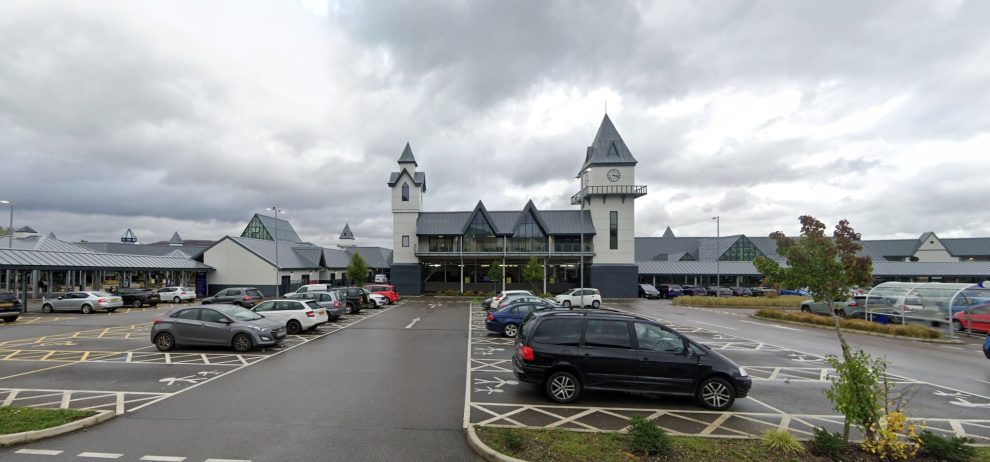TRAGO Mills in Merthyr Tydfil has been given permission to open, sell alcohol and play live music for longer.
The store on Swansea Road was successful in applying to vary a premises licence to allow the sale of alcohol from 10am to 10pm from Monday to Sunday, play live music indoors and outdoors from 10am to 8pm from Monday to Sunday and to be able to open from 9am to 10.30pm from Monday to Sunday.
The application was considered by the council’s statutory licensing committee on Monday, June 12 which has decided to grant it with certain conditions including the number of days for outdoor musical entertainment in a year, noise monitoring and CCTV requirements among others.
Trago Mills had had a licence which allowed it to sell alcohol from 9am until 8pm between Monday and Friday, from 9am until 6pm on Saturday and from 9am until 4pm on Sunday.
The licence it already had was for opening hours and the playing of live music from 10am until 8pm between Monday and Friday, from 10am until 6pm on Saturday and from 10am until 4pm on Sunday.
That licence was granted by the licensing sub-committee on in March 2018, subject to conditions and the report said that the council has not received any complaints in relation to this premises since the licence was issued.
As a result of mediation, the applicant has amended the application to include all conditions requested by South Wales Police and so the police has no objections to the licence being granted on this basis.
Police said that the applicant has confirmed the opening and closing times of the shop and confirmed that CCTV is currently in situ within the premises including the large car park.
They said that the applicant has confirmed that when all types of events are held, alcohol consumption outside of the main cafeteria will be provided in plastic drinking containers at all times.
But there was a letter of objection from local residents which raised “deep concern” about the application and said they are “disappointed and worried” about the potential negative impacts on the community and environment in terms of noise and footfall which they said would have a detrimental effect on their enjoyment of the land.
They said they already endure “incredibly loud music” and high footfall during events which they said makes it difficult to concentrate on work when working from home along with resting for night shifts. Residents also felt the licence would exacerbate matters and so “strongly” opposed the plans.
In the decision notice, the committee said that subject to the applicant agreeing the conditions imposed by South Wales Police, no concerns relating to crime and disorder were raised by them.
The police said there was only one reported incident of anti-social behaviour in the area of the store in the last three years.
The decision notice said that the residents stated that their fence had been damaged but confirmed that this had not been reported to the police. They also stated that Trago’s gate near their property had been damaged and had been poorly repaired.
The committee noted that this damage and the report of anti-social behaviour were “not attributable to licensable activities.”
There were no representations made in relation to public safety by any of the relevant authorities, but the residents claimed the construction of the fence is intrinsically dangerous and that a young female had reportedly recently almost become impaled.
But the decision notice said that this again could not be attributable to licensable activities although a Trago Mills representative did offer to meet with them on site for them to show him their concerns and for Trago to take any action if deemed appropriate.
Concerns were also raised by the residents about the state of the road that leads to the gate near their property and that the increased hours sought for the licensable activities would make the situation worse.
Trago stated that this should not be a concern as they had no intention of opening the gate during events.
They also stated that they had no intention of extending the operating hours of the store from what they currently were and that the additional times sought for licensable activities were only sought to enable them to have the option of using these additional times if it was required.
Trago confirmed that they had no recorded incidents of alcohol related anti-social behaviour at the store and that the store’s operating model was not based on alcohol sales, adding that the store does not experience issues with anti-social behaviour and that they have 24-hour security.
No representations were made by public health concerning noise issues.
The police said that the council’s public health officers had attended at the site and met store managers along with the police and on the basis of that meeting public health were satisfied that this licensable principle would not be breached.
The residents claimed there were noise issues but had not reported the same to public health and they were advised on how to record evidence of noise issues.
It was also confirmed that the condition limiting events at the store did not apply to the music as the music was deemed “incidental” and not subject to that condition.
The residents were told that if the music (incidental or otherwise) caused a noise nuisance then that was a breach of conditions on volume and on statutory nuisances generally.
The residents added that the additional hours sought would lead to an increase in footfall past their home which caused a nuisance especially with cars parking up and causing congestion.
The committee decision said that there was “no direct evidence” that the increased footfall was attributable to the licensing activities. The applicant had already confirmed that the gate leading to site access near their property would be closed if an event was taking place and on that basis there would be no conflict with the licensable principles.
The committee did not believe that extending the hours for licensable activities would breach the licensing objective of prevention of public nuisance.
The committee noted the concerns of residents but were assured that children can only attend the store when accompanied by an adult and no child has attempted to buy alcohol since an alcohol license was granted five years ago.
The committee did not believe that extending the hours for licensable activities would breach the licensing objective of protection of children from harm.



















